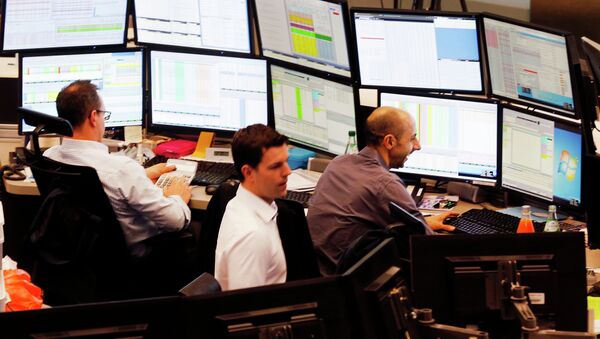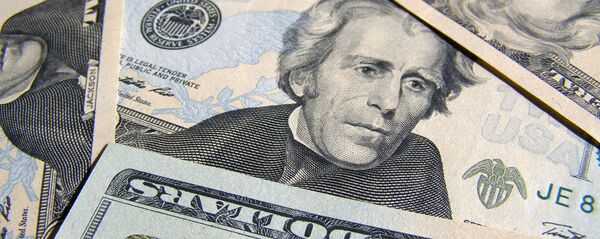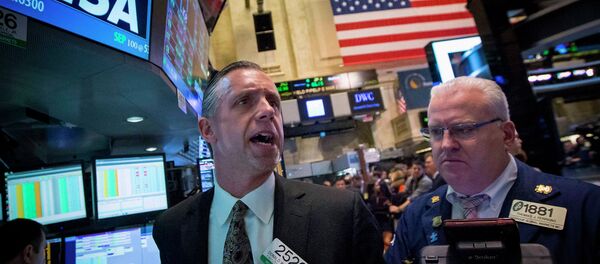Kristian Rouz — The outburst of the Saudi-led military operation in Yemen dropped off the investors' radar amidst gains in European shares and signals from Washington confirming indirectly that US monetary policy will drift towards more expensive borrowing costs soon, pushing the US dollar higher. Consequently, crude oil slipped roughly 1% on Friday, and market volatility decreased significantly in the US due to more stable economic growth. In Asia, many investors and traders were playing against the market, selling off equities after yesterday's rally across several sectors, resulting in an overall retreat in stocks. Europe posted insignificant gains, putting an end to the two-day losses, but markets worldwide are awaiting new policy moves from monetary regulators, suggesting the future pace of expansion in the world's biggest economies.
Trading volumes were high, with some 100,000 contracts signed. This past week, the Nikkei retreated 1.4%, effectively putting an end to its 6-week streak of gains. However, a stronger dollar may suggest the decline in Japanese stocks is only temporary. The market is still bullish as corporate earnings are high, along with shareholder returns.
Stocks in Thailand, South Korea, Hong Kong and Malaysia retreated only slightly, as Friday was dominated by the anticipation of the US Fed chair Janet Yellen's speech later in the day.
In Europe, stocks posted their greatest weekly losses since the year's start, however, most markets ended Friday's trading in the green. As the Middle Eastern tensions have become yesterday's news, obviously lacking any serious global impact even in oil prices, and the euro dropped again as a result of the ECB easing, stocks gained supported by a solid economic growth in the Eurozone.
The pan-European FTSEurofirst 300 Index added 0.2%, while the German DAX inched 0.1% up, along with the French CAC 40. In London, however, the FTSE Index dropped 0.6%, an aftereffect of yesterday's Dubai-inflicted shock to the London Stock Exchange. The euro retreated to $1.08, helping stocks.
European shares are now under pressure, however, as bond yields in several periphery nations rose unexpectedly, suggesting the situation in the real economy is becoming riskier on Europe's outskirts. In Italy and Portugal, bond yields posted a second straight week of gains, suggesting less economic efficiency and greater volatility in these nations.
In the US, WTI crude fell to $50.40/bbl after having surged 4.5% the day before on the Yemeni news. Brent crude fell to $58.14/bbl. The S&P 500 Index retreated 0.2% in New York, hovering just above its 100-day average. As the US stocks are becoming more stable and predictable in the absence of any breakthrough policy decision from the Fed, so does US economic growth. The S&P 500 volatility index has stabilized at about 15% in March, its lowest since August 2012. The CBOE Volatility index (VIX) ended this week at roughly 13%. VIX is directly linked to the estimated risks to the real economy.
All the aforementioned means there is little or no risk of a recession in the US, while America's financial sector is also becoming a less risky business, and the overall situation is more normal now, suggesting yet another reason for the Fed to move toward normality in base interest rates.
A lower VIX, as it is now, usually benefits stocks, because you would want to put your money in a sure thing, not in a volatile mire of living uncertainly. Now, VIX was at its lowest in 2004-2006, the period the US Fed hiked interest rate more than 15 times. That's a straight signal — US borrowing will be costlier soon, hence the renewed advance in the dollar FX rate.




